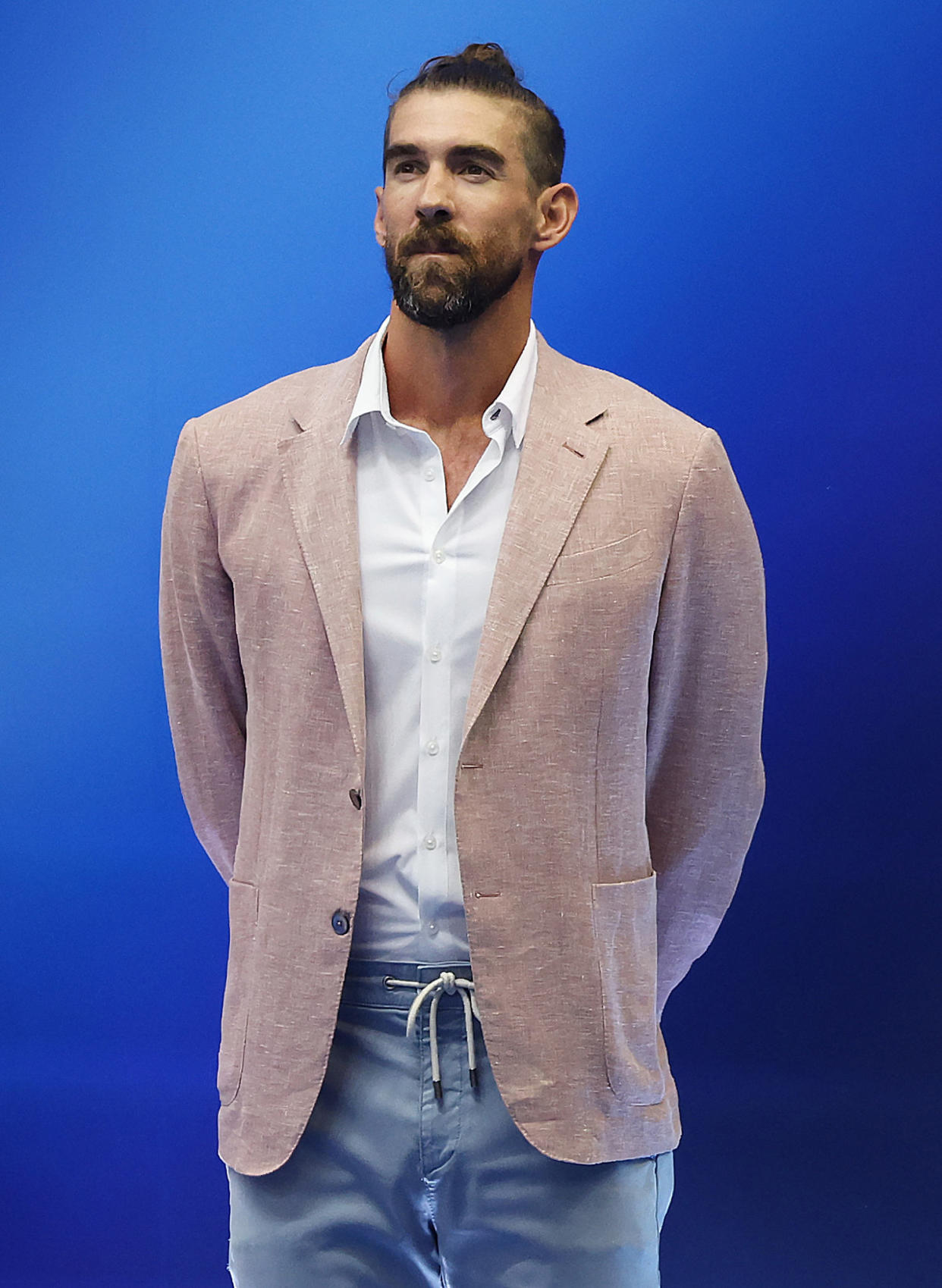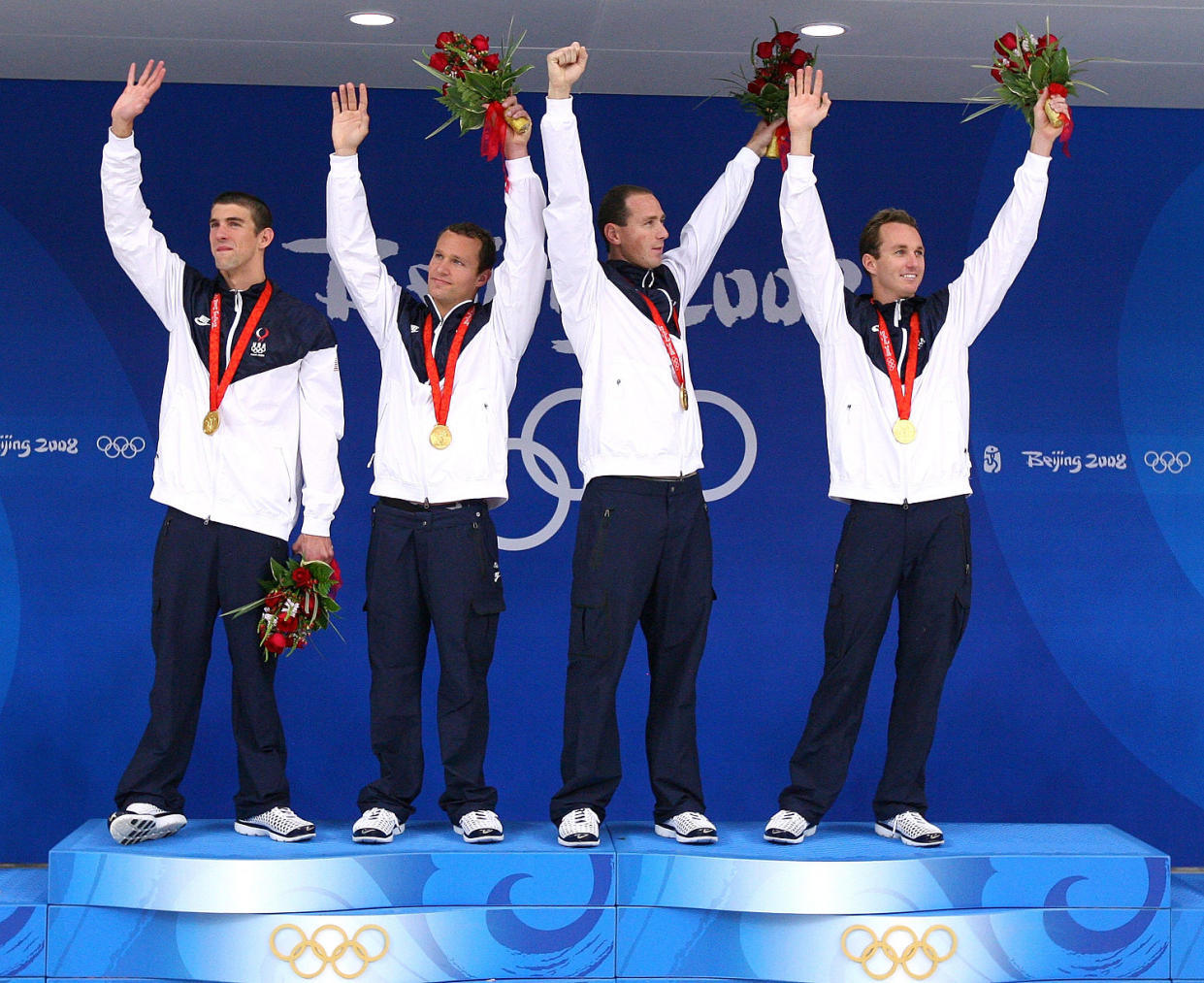Michael Phelps shares the 'great' learning that came out of his experience with depression
This story discusses suicide. If you or someone you know is struggling or in crisis, help is available. Call or text 988 or chat at 988lifeline.org.
Michael Phelps is opening up about how he came to grips with the knowledge he suffered from depression.
In a preview clip for the upcoming May 12 episode of NBC’s “Meet the Press,” Kristen Welker asked the 23-time Olympic gold medal swimmer if he knew he was depressed or if he thought he was simply “feeling a little off.”
“I think at that point I’ll say as a male athlete I could tell something was off,” Phelps said in the snippet that aired on TODAY May 10.
“But I think I saw it as a sign of weakness and if I shared anything about it then it would give my competitors an edge. And I’m not trying to do that, right? I don’t want to give my competitors an edge.”
Phelps, 38, said he came to appreciate what his depression represented.
“I’m trying to be better than anybody, period, has ever been,” he said. “So for me, I looked at it as weakness. So for me, I had to learn that vulnerability is a good thing. And it was scary at first, but I learned that vulnerability just means change. And for me it was a great change.”
Phelps has been outspoken about his depression in the past, opening up about how he considered suicide.

“I can tell you I’ve probably had at least half a dozen depression spells that I’ve gone through. And the one in 2014, I didn’t want to be alive,” Phelps told TODAY in 2017.
In 2014, Phelps was arrested for driving under the influence for the second time, and USA Swimming suspended him for six months. After the episode, he locked himself in his bedroom for four days.
“But going through my all-time low, you know, kind of seeing where I was and then seeing what I have now, I’m so thankful for my family and friends around me who were able to help me and were able to communicate with me,” he said.
He said he learned how vital it is to confront the emotion he felt.
“After years, and years, and years of just shoving every negative, bad feeling down to the point where I mean, I just didn’t even feel it anymore,” he shared.
“It was a long, long, long road and I just never wanted to deal with it. And for me, that sent me down a spiral staircase real quick and like I said, I found myself in a spot where I didn’t want to be alive anymore.”
Phelps also encourages other men with depression to go to therapy.

“If I hadn’t allowed myself to become vulnerable, I don’t know if I’d be here (today),” he told TODAY in 2023. “We need to give things a chance.”
Phelps has also singled out the role his wife, Nicole, plays in his mental health.
“For 15 years, Nicole has seen me go up and down,” Phelps told TODAY in 2022. “There’s no other person that would be able to support me like she has. She’s the glue that holds all of us together.”
Phelps and his wife are parents of four kids, Boomer, 8, Beckett, 6, Maverick, 4, and Nico, born earlier this year. He says his children also know he struggles with his mental health at times.
“Sometimes my kids will just see me leave the room. And that’s because I’m overwhelmed, and my emotions are firing on all cylinders and I can’t think straight,” he said in 2022.
Phelps is also determined to do what he can to be there for his family, while also making sure to address any issues he's confronting.
“I feel like I’m the best me, the best version of myself, when I’m present and in the moment ... and now having four little homies running around, I want to be as present and as active as I can in their life,” he told TODAY last December.
“No knock on my mom and dad, (but) they would always try to pretend like everything was great,” he added. “Let’s just be ourselves and ... voice our struggles and emotions that we’re going through instead of compartmentalizing them. I want to create that generational shift where instead of compartmentalizing and shoving these things down, we’re opening up and talking about them.”
This article was originally published on TODAY.com
